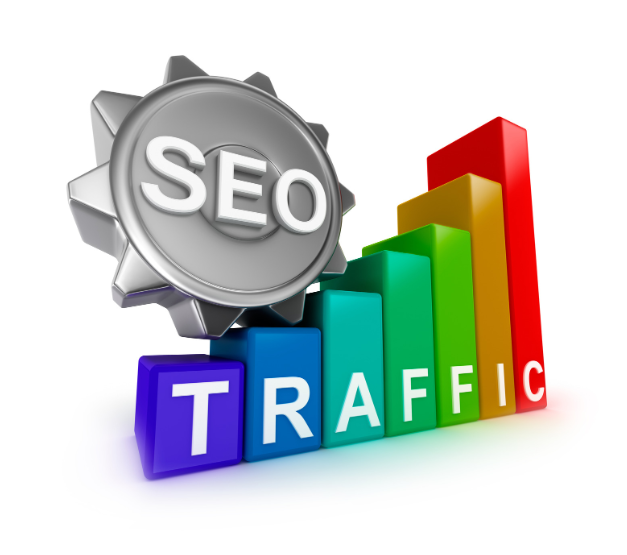In today’s digital age, having a strong online presence is essential for small businesses to thrive, especially at the local level. Local SEO (Search Engine Optimization) plays a pivotal role in helping businesses attract nearby customers who are actively searching for products or services in their area. In this comprehensive guide, we’ll walk you through a Local SEO Checklist tailored specifically for small business owners, equipping you with the tools and strategies to boost your visibility in local search results and outshine your competition.
1. Google My Business Optimization:
One of the most crucial steps in local SEO is optimizing your Google My Business (GMB) listing. Begin by claiming and verifying your GMB listing to gain control over how your business appears on Google Maps and in local search results. Ensure that your business’s Name, Address, and Phone Number (NAP) are consistent across all platforms. Craft a compelling business description that accurately reflects your offerings and select the most relevant categories to categorize your business. Enhance your listing with high-quality images and videos to make a positive impression on potential customers, and actively encourage satisfied customers to leave reviews while promptly responding to feedback.
2. Website Optimization for Local Search:
Your website serves as the digital storefront for your business, making it essential to optimize it for local search. Start by ensuring that your website is mobile-friendly and responsive, as an increasing number of users access the internet via mobile devices. Incorporate location-specific keywords strategically within your website’s meta tags, headings, and content to signal relevance to local search queries. Develop localized content that addresses the needs and interests of your target audience, and leverage schema markup to provide search engines with structured data about your business’s location and offerings. Additionally, prioritize optimizing your website’s loading speed to provide a seamless user experience.
3. Local Citations and Online Directories:
Building a strong presence on local citations and online directories is essential for boosting your business’s visibility in local search results. Identify relevant online directories and citation sources specific to your industry and location, ensuring that your NAP information remains consistent across all platforms. Submit your business information to prominent directories such as Yelp, Yellow Pages, and your local Chamber of Commerce to increase your online visibility. Regularly monitor and update your citations to maintain accuracy and relevance.
4. Localized Content Strategy:
Developing a localized content strategy is key to engaging with your target audience and establishing your business as a trusted authority in your community. Create blog posts, articles, or videos that address local topics, events, and interests, incorporating local keywords naturally within your content. Engage with local community forums and social media groups to foster connections and build brand awareness among local residents.
5. Online Reputation Management:
Your business’s online reputation can significantly impact its success, making it essential to actively manage and monitor customer reviews and ratings across various platforms. Respond promptly and professionally to both positive and negative reviews, demonstrating your commitment to customer satisfaction. Encourage satisfied customers to leave reviews and address any customer concerns or issues publicly to showcase your dedication to resolving problems.
6. Local Link Building:
Building a strong network of local backlinks can further enhance your business’s authority and visibility in local search results. Seek opportunities for local link building through partnerships with neighboring businesses, guest posting on local blogs or websites, and sponsoring local events or charities in exchange for mentions on their websites. Active participation in local business associations and directories can also help boost your business’s online presence.
7. Social Media Optimization for Local Engagement:
Maintaining an active presence on social media platforms frequented by local audiences can amplify your business’s reach and engagement within the community. Share local news, events, and promotions to keep your audience informed and engaged. Respond promptly to comments and messages to foster meaningful interactions with your followers, and utilize geotags and location-based hashtags in your posts to increase visibility among local users.
8. Tracking and Analytics:
Tracking and analyzing key metrics is essential for measuring the effectiveness of your local SEO efforts and identifying areas for improvement. Set up Google Analytics and Google Search Console to monitor website traffic, search rankings, click-through rates (CTRs), and conversion rates for local searches. Use data-driven insights to refine and optimize your local SEO strategies over time, ensuring continued growth and success.
Takeaway
Mastering local SEO is crucial for small businesses looking to thrive in their local markets and attract nearby customers. By following this comprehensive Local SEO Checklist, you’ll be well-equipped to optimize your online presence, increase your visibility in local search results, and ultimately, drive more foot traffic and sales to your business. Remember, local SEO is an ongoing process that requires dedication and regular updates, so stay proactive and continually refine your strategies to stay ahead of the competition.
Experience SEO like never before with Web Boost Online. Our services guarantee a boost in visibility, traffic, and overall digital success. Trust the experts and watch your website thrive!











